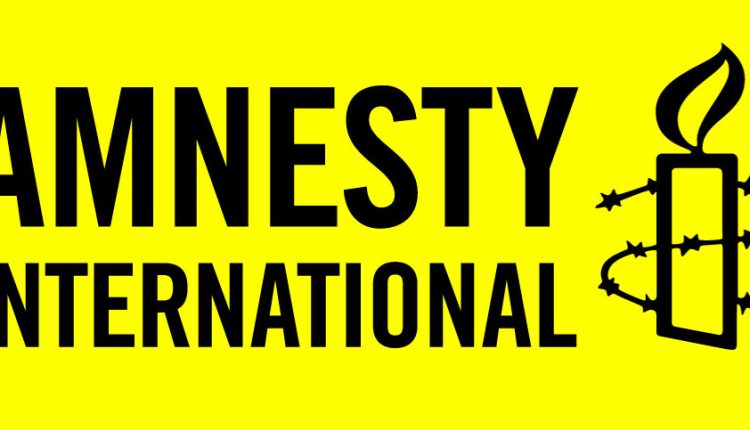The Togolese authorities must put an end to unnecessary and excessive use of force against protesters, said Amnesty International, amid the latest violent crackdown on protests in the capital, Lomé, since 26 June.
The organization spoke with 18 victims and witnesses. Thirteen described a pattern of unlawful use of force and mistreatment by police and security forces against protesters and passers-by.
“These cases must be independently and transparently investigated as a matter of urgency.” Marceau Sivieude, Amnesty International’s interim Regional Director for West and Central Africa
These protests, considered illegal by the authorities, are the latest in a series of demonstrations since the beginning of June against the repression of dissent, the high cost of living and changes to the constitution. Last month, Amnesty International documented allegations that protesters had been tortured or subjected to ill-treatment.
“In recent days, we have interviewed people who have alleged that men identified as security forces carried out unlawful killings, arbitrary arrests and detentions, acts of torture and other ill-treatment, and several cases of abduction. These cases must be independently and transparently investigated as a matter of urgency,” said Marceau Sivieude, Amnesty International’s interim Regional Director for West and Central Africa.
Reports of unlawful use of force by security forces
Thirteen people interviewed by Amnesty International said that men in uniform, suspected to be members of security forces and people described as ‘militiamen’ used unnecessary and excessive force and violence.
A man living in Avénou said: “On 30 June, everything was quiet in our neighbourhood. Suddenly three pick-ups and a car came speeding down our street. Everyone started running away. Men forced their way into our house. They made us get out and told us to kneel down. They were all in civilian clothes. They pointed their guns at us and then they beat us. They left, saying they were going to come back.”
A 38-year-old man said: “On 26 June at around 3pm, I was taking part in a protest in Attiégou, when a group of soldiers attacked me. They hit me hard. I ended up losing consciousness and some young people took me for treatment.”
A 17-year-old teenager said he was arrested on 26 June by gendarmes and held for five days, first at the Zorobar gendarmerie station, then at the former national gendarmerie headquarters and the Avepozo gendarmerie camp. “They put us on our knees with our arms raised. If we lowered our arms, they hit us with cords […]. All day long, we only drank one sachet of water”.
The teenager says he is still suffering from back pain. According to him, more than 40 people were detained with him at the gendarmerie on 30 June, including other children.
Two men and a woman have been missing since 27 June. They were allegedly abducted by unidentified men from a house in the Adidogomé neighbourhood. In a video broadcast live on Tik Tok on 27 June by one of the victims, people were seen bursting into the room, and then the video cut. In the preceding days, he had published several videos in support of the protests and denouncing arbitrary arrests.
“All light must be shed on these deaths and the whereabouts of those who have disappeared.” Fabien Offner, researcher at Amnesty International’s regional office for West and Central Africa
At least seven people found dead, including children
The parents of a 16-year-old boy found dead in the Bè lagoon on 27 June told Amnesty International that members of the security forces in black uniforms had entered the neighbourhood the previous day and that tear gas shots had been heard. The boy’s body was found along with that of another child.
In a statement shared on 29 June, Togolese civil society organizations reported the deaths of seven people, whose bodies were found in rivers in Lomé, and mentioned ‘beatings’ and ‘arbitrary arrests of passers-by, youth, and older people’, and ‘chases […] of young people, sometimes children, forced to take refuge in the lagoon’.
The statement also mentioned ‘bullet holes in three bodies found in the Bè lagoon on 27 June […] and testimonies of local residents who reported gunshots’.
“All light must be shed on these deaths and the whereabouts of those who have disappeared. Those detained for exercising their right to freedom of expression and peaceful assembly must be released,” said Fabien Offner, researcher at Amnesty International’s regional office for West and Central Africa.
The government announced on 29 June that the bodies found were those of people who had ‘drowned’, citing ‘the results of forensic analyses’.
“We don’t know the exact number of people brought before the court and those still in custody”, lawyer Darius K. Atsoo said to Amnesty International. According to him, as of 30 June, 18 people arrested on 26, 27 and 28 June had been released and 31 were still being held in custody following hearings before the public prosecutor.
On 2 July, at least six people had not been found by their families, according to testimonies.
Distributed by APO Group on behalf of Amnesty International.



